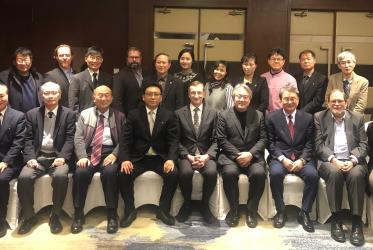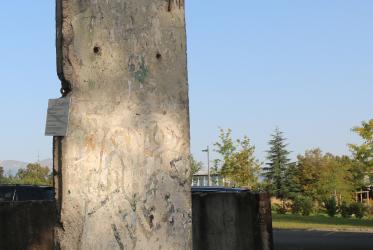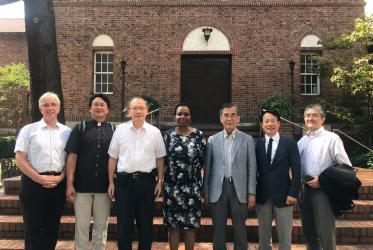Displaying 101 - 120 of 742
WCC condemns attack at Hanukkah celebration in New York City
29 December 2019
Religious leaders keep vision of peace alive on Korean Peninsula
10 December 2019
WCC Executive Committee meets with eye toward busy future
20 November 2019
WCC delegation meets with Korean prime minister
19 November 2019
Tveit: “Love is about the future: Where are we going from here?”
17 November 2019
South Sudan Council of Churches: peace “is a question of the heart”
11 November 2019
Churches in southern Africa stand against violence, xenophobia
10 October 2019
In Japan, spirit of koinonia deepens
26 September 2019
WCC gravely concerned for West Papua
25 September 2019











